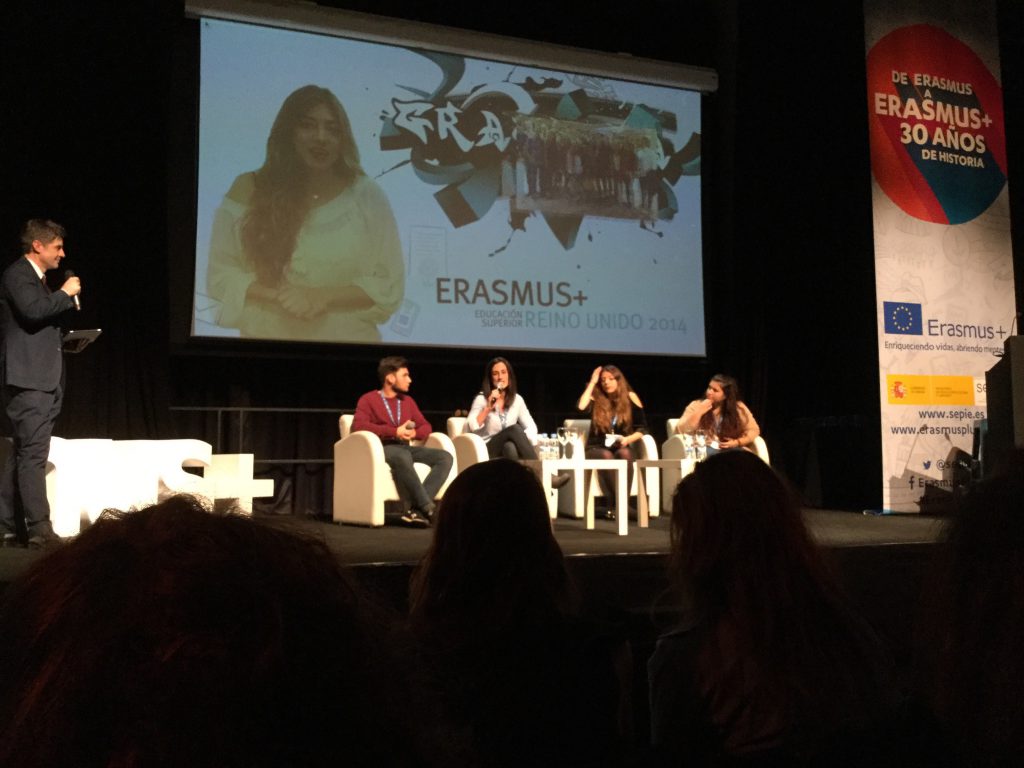30/01/2017
Spain is the first destination chosen by Erasmus+ students
Spain continues to be the top destination chosen by the young university students to carry out a mobility through this European programme. This was exposed on 19 and 20 December in Madrid at the Annual Seminar for the promotion of Erasmus+

Spain continues to be the top destination chosen by the young university students to carry out a mobility through this European programme. This was exposed on 19 and 20 December in Madrid at the Annual Seminar for the promotion of Erasmus+
On 19 and 20 December, Madrid became the host of the annual seminars organised by the Spanish Service for the Internationalisation of Education (SEPIE) to promote the EU’s Erasmus+ programme (2014-+2020). The central theme of the 2016 edition was the 30th anniversary of the Erasmus programme (1987-2017): 30 years changing lives, opening minds. The Spanish minister for Education, Professional Training and Universities, Marcial Marín, reminded attendees that “in the programme’s first year, 1987, Spain funded 95 mobility visits and has since sent more than 500,000 students abroad”.
Since the Erasmus+ programme was launched in 2014, two million people in all areas of education have benefitted from the opportunities that it offers (study visits, work experience, volunteering) and between 2017 and 2020 it will provide opportunities to a further two million people in Europe and around the world.
The seminars included round table discussions, debates and presentations of success stories and good practices from participants across all sectors of the Erasmus+ programme: School Education, Professional Training, Adult Education and Higher Education.
The seminars also featured the 2016 Quality Awards for Erasmus+ projects, which are awarded in recognition of good project management and notable achievement in European educational programmes. In the Higher Education category, awards were given to the University of Huelva and to the student Alejandra González Fernández from the University of Santiago de Compostela for her Erasmus+ mobility studies and work experience during the 2015-2016 academic year.
On 19 December, during the session on the Higher Education sector, the SEPIE provided information on the following points: the call for proposals for 2017; mobility projects between Erasmus countries (project KA 103); Strategic Associations (KA203); and an example of good practices in work experience mobility for new graduates by the University of Valencia.
On 20 December, the SEPIE told attendees about the internationalisation of Higher Education in Spain and a talk was given on the International Dimension of Erasmus+: situation and future prospects, by Graham Wilkie, a director attached to the Unit for International Cooperation in the Jean Monnet Education and Youth Actions that are run by the European Commission’s Directorate General for Education and Culture.
There was also information on cooperation with associated countries, with talks by the National Erasmus+ Offices of the Azerbaijan, Ukraine, Tunisia and Serbia, and a session on Joint Erasmus Mundus master’s degrees.
In the final sessions on 20 December there was information on mobility projects between established Erasmus countries and the associated countries (KA107), with particular attention given to the cooperation with the DCI Middle East Region (Iran, Iraq and Yemen). A talk was given by D. Mohammad Hassan Fadaifard, ambassador for the Islamic Republic of Iran, along with a presentation by the University of Alicante on good practices in Cooperation with Iran. Particular emphasis was placed on this region because, along with Tunisia, it has been added to the 2017 call for proposals regarding mobility between Erasmus countries and associated countries (KA107).
More news about: Erasmus+, International Center, mobility, SEPIE
